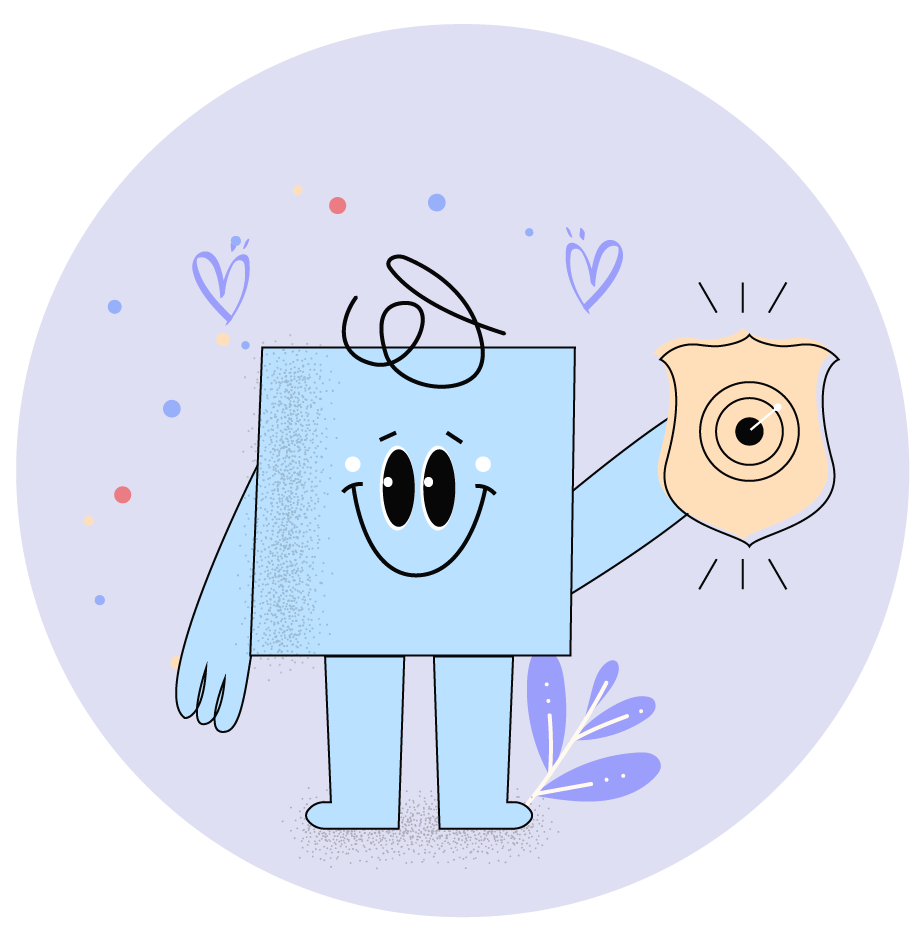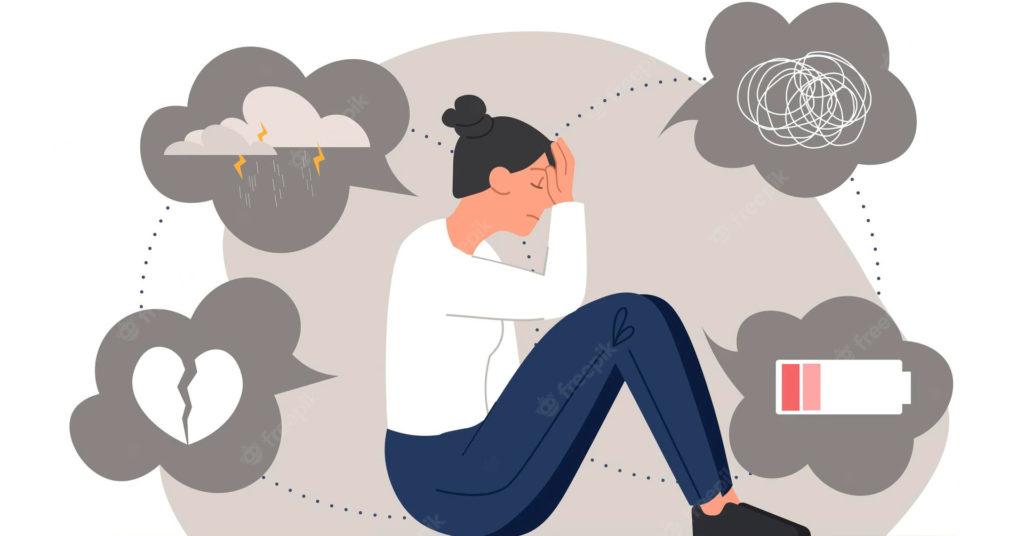When someone asks us, ‘have you ever experienced anxiety?’ Immediately, the thought that comes to our mind is how silly the question sounds. Most of us feel and experience anxiety every day in one way or the other.
The only thing different is the nature of the anxiety we experience. For example, two people working in the same office, students learning in the same school, or players playing in one team can experience different anxieties based on their emotions and mental state.
The classic definition of anxiety is: anxiety is a negative mood state characterised by bodily symptoms of physical tension and apprehension about the future. (American Psychiatric Association, 2013: Barlow 2002)
Clinical description of generalised anxiety disorder
Humans tend to worry or consistently think about a few things. However, one must be very careful about realising when it is turning into a clinical type of anxiety or worry. The primary identification of pathological anxiety and persistent worry is that an individual cannot control or turn off the worry process.
Another way can be that even if one has worries, they can set aside the problem and return to their regular work or life. However, in clinical anxiety, one cannot focus on any part of their life.
The physical symptoms of generalised anxiety disorder differ somewhat from those of panic attacks and panic disorder. Generalised anxiety disorder is associated with muscle tension, mental agitation, fatigue, irritability, and difficulty sleeping.
Let us look at the symptoms of generalised anxiety disorder given by the Diagnostic and Statistical Manual of Mental Disorder-5:
Diagnostic criteria for Generalised Anxiety Disorder-
- Excessive anxiety and worry (apprehensive expectation) occurring more days than not for at least six months about several events or activities (such as work or school performance).
- The individuals find it difficult to control their worries.
- The anxiety or worry is associated with at least 3 of the following symptoms-
- Restlessness or feeling keyed up or on edge.
- Being easily fatigued.
- Difficulty concentrating or mind going blank.
- Irritability.
- Muscle tension.
- Sleep disturbances( difficulty falling or staying asleep or restlessness, unsatisfying sleep)
Generalised anxiety disorder vs. anxiety attacks/panic attacks
Mental health practitioners often encounter this confusion from the client’s end that they cannot figure out whether it is a panic attack or generalised anxiety disorder. The best way to discriminate would be to look into the symptoms of both.
Let us look at the symptoms of a panic attack-
- The surge of overwhelming panic.
- Feeling of losing control or going crazy.
- Heart palpitations or chest pain.
- Feeling like you’re going to pass out.
- Trouble breathing or choking sensation.
- Hyperventilation.
- Hot flashes or chills.
- Trembling or shaking.
- Nausea or stomach cramps.
- Feeling detached or unreal.
As we can see, the physiological symptoms of panic attacks are more than that of generalised anxiety disorder. Moreover, another difference is the duration of both conditions. Generalised anxiety disorder lasts for six months or more, whereas panic attacks are sudden.
Panic attacks are more episodic. They can peak in 10 minutes and rarely last for more than 30 minutes. Panic attacks occur when the individual is caught in a particular situation. However, in generalised anxiety disorder, worry or anxiety is about the number of events or activities. This anxiety is about the events happening in the future.

Don’t let the overthinking and panic control your life anymore
Restructure your emotional patterns in therapy
Causes of generalised anxiety disorder-
There is no definitive cause for anxiety disorder. A lot of factors contribute to developing a generalised anxiety disorder. Let us take a look at them one by one.
1. Biological contributions
Evidence shows that genetic tendency or genetic heredity can contribute to having an anxiety disorder. Contributions from collections of genes in several areas on chromosomes make us vulnerable when the right psychological and social factors are in place. ( Barlow et al., 2013; Clark 2005)
Anxiety is also associated with specific brain circuits and neurotransmitters. The depleted levels of gamma-aminobutyric acid(GABA), part of the GABA- benzodiazepine system, are associated with increased anxiety.
2. Psychological contributions
Sigmund Freud thought that anxiety resulted from the psychic reaction to the danger surrounding the reactivation of an infantile fearful situation. Another fact contributing to this theory is that psychologists have suggested that anxiety can trigger because of the parenting style individuals experience as a child.
Parents who interact positively, provide unconditional positive regard, secure a home base, and respond to their children’s needs from time to time, their children tend to be carrying more healthy ways to cope with such anxious situations.
In contrast, parents who never let their children face any adversity are overprotective and intrusive, and their children never learn how to tackle any hurdle that comes their way. These children think they cannot control the situation, emotions, or environment around them. Hence, they are more prone to experience an anxiety disorder.
3. Social contributions
Stressful life events trigger our biological and psychological vulnerabilities to anxiety. Most are social and interpersonal in nature- marriage, divorce, difficulties at work, death of a loved one, pressures to excel in school, and so on.
Daily hassles, frustrations, and significant life-changing events can also cause anxious conditions.
Treatment for generalised anxiety disorder-
1. Self-help for this condition
- Connect with others– Being upfront about this disorder is extremely important. Mental health practitioners always suggest expressing their worries and fears to their close and trusted ones. In this way, the load can be lightened.
- Manage stress– Everyone has their stress levels these days. Instead of complaining about it, the best way one can apply is to prioritise the tasks. Manage the tasks and chunk them down.
- Practice relaxation techniques– Practising breathing exercises and regularly doing relaxation techniques can help to relieve some of the anxiety. One needs to give the window for anxiety to get out of the system.
- Get enough sleep– Our sleep schedule has to be up to the mark as it helps us to keep our minds fresh in the morning. Insufficient sleep can only lead to irritability.
It has been proven that therapy, in other words, cognitive therapy works better and more effectively with generalised anxiety disorder. Let us look at what therapies can help generalised anxiety disorder:
2. Cognitive behaviour therapy-
In this type of therapy, clients evoke the worry process during therapy sessions and confront anxiety-provoking images and thoughts head-on. The clients learn coping techniques to counteract and control the worry process. In one major clinical trial with children with G.A.D., C.B.T. and antidepressant drug sertraline (Zoloft) were equally effective immediately following treatment compared with taking placebo pills for children with G.A.D. and other related disorders, but the combination of C.B.T. and sertraline was even better, with 80% showing substantial improvement versus 24% on placebo (Walkup et al., 2008)
3. Exposure therapy-
In this therapy, an individual is systematically exposed to their fearful situation, object, place, or events in a controlled environment. Clients are confronted with their worries with their imagination, images, or reality to get a better sense of control. Once the individual faces the fear without being harmed, the anxiety will gradually diminish.
Read More:
How to Deal with Guilt? Here are The 10 Useful Tips You Should Know
Grief : An Overwhelming Emotion
Teen Depression: Symptoms of Depression in Teens
10 Ways to Cope with Depression?








One Response
Very nice post. I just stumbled upon your weblog and wished to mention that I have truly enjoyed surfing around your weblog posts. After all I will be subscribing for your rss feed and I’m hoping you write again very soon!